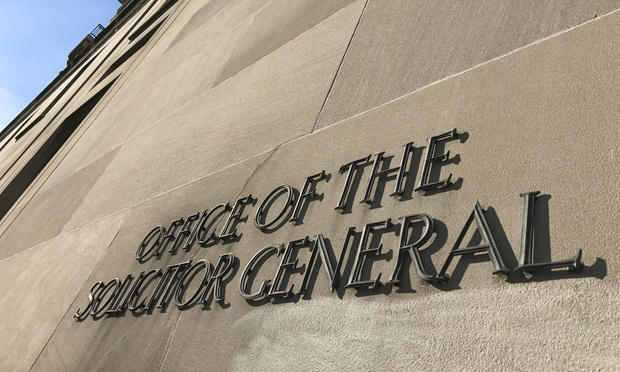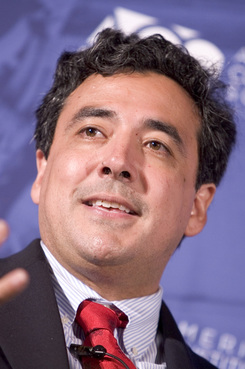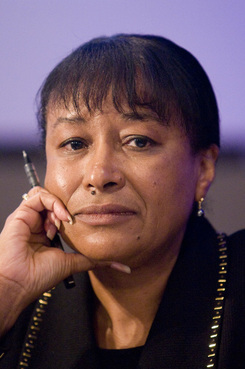Justice Department, With Regret, Backs $380M 'Cy Pres' Settlement at Supreme Court
The U.S. Justice Department tells the Supreme Court it doesn't need any guidance about "cy pres" settlements—not after U.S. Attorney General Jeff Sessions last year adopted a new policy that would preclude such provisions in future deals.
March 02, 2018 at 06:48 PM
8 minute read
 U.S. solicitor general's office at Main Justice. Credit: Mike Scarcella/ ALM
U.S. solicitor general's office at Main Justice. Credit: Mike Scarcella/ ALM The Trump administration's Justice Department, despite its announced regret, is asking the U.S. Supreme Court not to review challenges to $380 million that third-parties are set to receive as part of a larger U.S. government settlement with Native American farmers and ranchers.
U.S. Attorney General Jeff Sessions in June announced a new policy that prohibits, with a few exceptions, government attorneys from entering into settlement agreements that require so-called “cy pres” payments—funds that are given to persons or entities that are not direct parties to the dispute.
The $380 million at issue in the consolidated cases now at the Supreme Court, Tingle v. Perdue and Mandan v. Perdue, would be distributed to nonprofit groups that work with Native American farmers and ranchers. The funds were part of a bigger $680 million settlement that the U.S. government reached in 2011 with the plaintiffs in the case in Washington's federal trial court.
 Solicitor General Noel Francisco. Credit: Diego M. Radzinschi/ The National Law Journal
Solicitor General Noel Francisco. Credit: Diego M. Radzinschi/ The National Law JournalU.S. Solicitor General Noel Francisco, in his Supreme Court brief opposing review, said the Justice Department's new policy “will prevent the recurrence of circumstances like those that led to the modified cy pres provision here, in turn eliminating any need for this court's guidance regarding the principles that would govern the legality and administration of cy pres provisions in settlements involving the federal government.”
Justice Department lawyers, in the U.S. Court of Appeals for the D.C. Circuit, called the third-party funds “regrettable.” The government said “there are only loose controls on how this money will be spent, and no allowance for public input or oversight concerning expenditure choices.” The government said the settlement would not have been approved under the new policy, and that the department “has now taken steps to ensure that a settlement of this nature will not occur again.”
Joseph Sellers of Cohen Milstein Sellers & Toll, counsel to the class in the underlying case, also asked the Supreme Court to deny review.
Sellers said the government could have taken a new course and asked the justices to grant review and reject the settlement. “They have been known to change sides,” he said. The government, however, might have had a hard time repudiating the deal in the Supreme Court after having asked a lower appeals court not to reject the deal, he said.
“This Is Not Justice”
In Tingle v. Perdue and Mandan v. Perdue, Donivon Tingle and Keith Mandan challenge the constitutionality and fairness of the cy pres provision that was part of the U.S. Department of Agriculture's class action settlement to resolve discrimination claims filed by Native American farmers and ranchers.
The plaintiffs had alleged USDA discriminated against class members in farm-loan programs from 1981 through 1999. After more than 3,600 individuals submitted successful claims, about $380 million of the settlement funds remained. Some of that money went to additional compensation to class members.
 Janice Rogers Brown. Photo: Diego M. Radzinschi/ NLJ
Janice Rogers Brown. Photo: Diego M. Radzinschi/ NLJThen-U.S. Attorney General Eric Holder's Justice Department and the Native American class negotiated, in an addendum to the original settlement agreement, how to distribute the remaining $300 million in funds. They agreed that $38 million would be distributed immediately to nonprofits that provide agricultural, business assistance or advocacy services to Native American farmers and ranchers.
A trust would distribute the remaining funds—$265 million—for the benefit of the class over a period of up to 20 years. The money would help fund business assistance, educational programs, technical support and advocacy.
The undistributed money from the settlement was higher than anticipated, according to court filings. The lawyers who negotiated the settlement thought there'd be more successful farmer and rancher claimants.
The D.C. Circuit, divided, in May 2017 rejected the challenges to the settlement. The dissenting judge, Janice Rogers Brown, who is now retired, assailed the cy-pres provision.
“Cy pres permits the judiciary to take more than half the taxpayer money Congress authorized to pay claims in this case and appropriate the money for something else,” Brown wrote. “This is not justice. It is not even law.”
Francisco and class counsel Sellers contend the D.C. Circuit correctly ruled that Mandan had waived or forfeited his constitutional objections to the cy pres provision despite multiple opportunities to raise them in the trial court. The appellate court also, they contend, properly rejected Tingle's arguments that class counsel had a conflict of interest in negotiating the addendum.
Other Cy Pres Challenges in the Wings
Ted Frank, director of litigation and the Center for Class Action Fairness at the Competitive Enterprise Institute, said he was not surprised by the government's insistence the justices not take up the dispute. The Justice Department, he said, is “locked in, and the vehicle problems here are so immense.”
Frank took issue with the Justice Department's claim that the government doesn't need any guidance from the Supreme Court about cy pres settlements.
“Just because Jeff Sessions implemented a policy in 2017 doesn't mean President Oprah's attorney general won't reverse the policy in 2021,” he said. “I also was a little concerned they did it this way because legislation pending in Congress [on cy pres settlements] probably won't go anywhere now because they no longer see it as a bipartisan issue.”
Frank is pursuing his own cy pres challenge in the Supreme Court in Frank v. Gaos, which stems from the $8.5 million cy pres-only settlement of claims by about 129 million people that Google illegally shared the search queries of its users.
Of the $8.5 million settlement, about $3.2 million was set aside for legal fees, administrative costs and incentive payments to the named plaintiffs. The remaining $5.3 million was allocated to six third-party recipients.
The district court held that the cy pres-only settlement was appropriate because the settlement fund was non-distributable. In August, a three-judge panel of the Ninth Circuit affirmed that decision.
Andrew Grossman, partner at Baker & Hostetler, represents Frank in the Supreme Court. The response by Google is due March 9. Google is represented by Mayer Brown partner Donald Falk.
Sellers said he reads the Justice Department's new policy to mean the department will not enter into—except in rare circumstances—settlements that contain cy pres provisions.
“They don't say that they might not choose, under the Class Action Fairness Act, to come in non-federal government cases and question the use of cy pres,” Sellers said. “It doesn't foreclose them from challenging cy pres and they may be invited in by private parties. We're going to have to see.”
Frank said if the justices take his challenge, he would encourage the Justice Department to participate. “We would go to the solicitor general and say, 'Your brief is already written.' We would love to have the government's support,” he said.
The U.S. Justice Department's brief in Tingle v. Perdue is posted below:
This content has been archived. It is available through our partners, LexisNexis® and Bloomberg Law.
To view this content, please continue to their sites.
Not a Lexis Subscriber?
Subscribe Now
Not a Bloomberg Law Subscriber?
Subscribe Now
NOT FOR REPRINT
© 2025 ALM Global, LLC, All Rights Reserved. Request academic re-use from www.copyright.com. All other uses, submit a request to [email protected]. For more information visit Asset & Logo Licensing.
You Might Like
View All
'Something Else Is Coming': DOGE Established, but With Limited Scope

Supreme Court Considers Reviving Lawsuit Over Fatal Traffic Stop Shooting

US DOJ Threatens to Prosecute Local Officials Who Don't Aid Immigration Enforcement
3 minute read
US Judge Cannon Blocks DOJ From Releasing Final Report in Trump Documents Probe
3 minute readTrending Stories
Who Got The Work
J. Brugh Lower of Gibbons has entered an appearance for industrial equipment supplier Devco Corporation in a pending trademark infringement lawsuit. The suit, accusing the defendant of selling knock-off Graco products, was filed Dec. 18 in New Jersey District Court by Rivkin Radler on behalf of Graco Inc. and Graco Minnesota. The case, assigned to U.S. District Judge Zahid N. Quraishi, is 3:24-cv-11294, Graco Inc. et al v. Devco Corporation.
Who Got The Work
Rebecca Maller-Stein and Kent A. Yalowitz of Arnold & Porter Kaye Scholer have entered their appearances for Hanaco Venture Capital and its executives, Lior Prosor and David Frankel, in a pending securities lawsuit. The action, filed on Dec. 24 in New York Southern District Court by Zell, Aron & Co. on behalf of Goldeneye Advisors, accuses the defendants of negligently and fraudulently managing the plaintiff's $1 million investment. The case, assigned to U.S. District Judge Vernon S. Broderick, is 1:24-cv-09918, Goldeneye Advisors, LLC v. Hanaco Venture Capital, Ltd. et al.
Who Got The Work
Attorneys from A&O Shearman has stepped in as defense counsel for Toronto-Dominion Bank and other defendants in a pending securities class action. The suit, filed Dec. 11 in New York Southern District Court by Bleichmar Fonti & Auld, accuses the defendants of concealing the bank's 'pervasive' deficiencies in regards to its compliance with the Bank Secrecy Act and the quality of its anti-money laundering controls. The case, assigned to U.S. District Judge Arun Subramanian, is 1:24-cv-09445, Gonzalez v. The Toronto-Dominion Bank et al.
Who Got The Work
Crown Castle International, a Pennsylvania company providing shared communications infrastructure, has turned to Luke D. Wolf of Gordon Rees Scully Mansukhani to fend off a pending breach-of-contract lawsuit. The court action, filed Nov. 25 in Michigan Eastern District Court by Hooper Hathaway PC on behalf of The Town Residences LLC, accuses Crown Castle of failing to transfer approximately $30,000 in utility payments from T-Mobile in breach of a roof-top lease and assignment agreement. The case, assigned to U.S. District Judge Susan K. Declercq, is 2:24-cv-13131, The Town Residences LLC v. T-Mobile US, Inc. et al.
Who Got The Work
Wilfred P. Coronato and Daniel M. Schwartz of McCarter & English have stepped in as defense counsel to Electrolux Home Products Inc. in a pending product liability lawsuit. The court action, filed Nov. 26 in New York Eastern District Court by Poulos Lopiccolo PC and Nagel Rice LLP on behalf of David Stern, alleges that the defendant's refrigerators’ drawers and shelving repeatedly break and fall apart within months after purchase. The case, assigned to U.S. District Judge Joan M. Azrack, is 2:24-cv-08204, Stern v. Electrolux Home Products, Inc.
Featured Firms
Law Offices of Gary Martin Hays & Associates, P.C.
(470) 294-1674
Law Offices of Mark E. Salomone
(857) 444-6468
Smith & Hassler
(713) 739-1250










